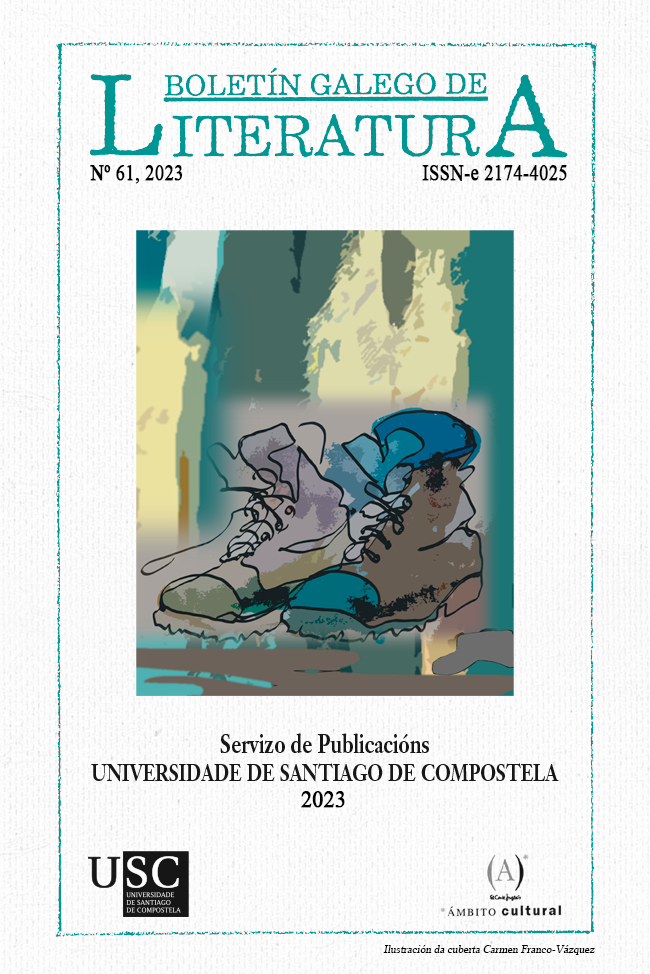Confronting foreign cultural invasion through a card game: the case of "Alakazum!"
Main Article Content
Abstract
The card game Alakazum!, by Zombi Paella publishing house, offers a multimodal narrative starring different characters from Andalusian, Catalan, Galician, Valencian and Basque folklore, who must accumulate power to defeat one of the final enemies, from North American culture. In order to study how the proposal is articulated, as well as to check whether the language of certain modern board games can be used in a similar way to other artistic media in the creation of cultural artefacts of an aesthetic nature, this paper carries out a paratextual and discursive analysis of Alakazum!. The results show a great originality in the elaboration of the narrative, whose construction shares certain characteristics of other languages, but treated in a new way, resulting in its own code with semantic and constitutive independence. Moreover, the potential of these proposals for the development of plural reading intertexts is evident, with references coming from systems beyond the literary one, which become essential for the formation of a competent reader of the 21st century.
Keywords:
Article Details
References
Aguilar, E. (2018). Alakazum! Zombi Paella.
Ballester Roca, J. e Méndez Cabrera, J. (2021). Los clásicos como resistencia: la lectura literaria en el marco de una educación lectora transmedia. Tejuelo, 34, 195-220. https://doi.org/10.17398/1988-8430.34.195
Catalán, A. (2020). Los juegos de mesa modernos como fenómeno y artefacto cultural contemporáneo [Traballo Fin de Máster]. Universitat Oberta de Catalunya. https://bit.ly/3ZD8EI6
Editorial (2 de novembro de 2018). Halloween, un fenómeno de globalización y de sacralización de la sociedad. Portal de Comunicación. Universidad de Alcalá de Henares. https://bit.ly/46Bxhb6
García-Pedreira, R. (2023). El juego de roles ocultos como estrategia didáctica en el ámbito de la educación literaria. En A. Souto Seijo, I. Dans Álvarez de Sotomayor, G. Míguez Salina e O. Santamaría Queiruga (Eds.), Experiencias y prácticas innovadoras en la formación de profesionales de la educación (pp. 95-115). Dykinson.
Lluch, G. e Sanz-Tejeda, A. (2021). Analizar relato #LIJ. Ediciones de la Universidad de Castilla-La Mancha.
Marín, I. (2018). ¿Jugamos? Cómo el aprendizaje lúdico puede transformar la educación. Paidós Educación.
Pardo, A. (2006). Globalización y americanización: nuevos frentes en la batalla económica y cultural entre Hollywood y Europa. En Julio Montero y José Cabeza (Eds.), Por el precio de una entrada (pp. 161-181). Rialp.
Perla, Peter P. e McGrady, ED (2011). Why Wargaming Works. Naval War College Review, 64(3), Art. 8. https://bit.ly/3RMyXdf
Sánchez Montero, M. (2021). En clase sí se juega. Paidós Educación.
Viñolo-Locuviche, S. e Duran-Castells, J. (2013). Entre lo siniestro y lo subversivo. Categorías estéticas del cine de animación híbrida. Archivos de la Filmoteca, 72, 37-49.
Zombi Paella [@ZombiPaella] (3 de xullo de 2018). Alakazum! Un juego de brujas y tradiciones [Vídeo]. Youtube. https://www.youtube.com/watch?v=LKLvLxAcnbY
Most read articles by the same author(s)
- Rocío García-Pedreira, The female subjugation of Alice's White Rabbit's wife in picture book format , Boletín Galego de Literatura: No 60 (2022)
- Rocío García-Pedreira, The book art for children: an approach for teachers , Boletín Galego de Literatura: No 61 (2023)







